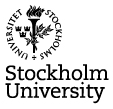Prof. Costanza on IHOPE
Prof. Costanza will on January 11, 2006, hold the seminar "Developing an Integrated History (and future) of People on Earth - IHOPE".
This history leaves out the important ecological and climate context which shaped and mediated these events.
IHOPE is working to produce an integrated history of the climate, atmospheric chemistry and composition, material and water cycles, ecosystem distribution, species extinctions, land use systems, human settlement patterns, technological changes, patterns of disease, patterns of language and institutions, wars and alliances, and other variables on earth from several new and existing data sources that would provide a much richer picture of how (and why) the planet has changed in historical times.
This integrated history can serve as an improved basis for studies from various perspectives of the earth´s history and possible futures. It can also be used as a core data set to test integrated models of humans in natural systems at multiple time and space scales, from regional to global.
IHOPE is a project of IGBP/AIMES in collaboration with IHDP/PAGES and other global change projects. An initial Dahlem workshop held in June 2005 produced a set of background and synthesis papers covering four time scales: millennial (up to 10,000 years ago); centennial (up to 1000 years ago), decadal (up to 100 years ago) and the future.
The Dahlem workshop results and the future of the IHOPE project will be discussed.
About Professor Costanza
Bob Costanza is Professor of Ecological Economics and Director of the Gund Institute of Ecological Economics at the University of Vermont in Burlington, USA.
He is Gordon Gund Professor of Ecological Economics and Director of the Gund Institute of Ecological Economics at the University of Vermont in Burlington. Prof. Costanza´s research areas include: systems ecology, ecological economics, environmental policy, landscape ecology, ecological modelling, energy and material flow analysis, social traps, incentive structures and institutions.
Time and place
Place: Beijer Hall, the Royal Swedish Academy of Sciences Lilla Frescativägen 4, Stockholm
Vacancies | Contact | Environmental policy | Cookies
Stockholm Resilience Centre
Stockholm University, Kräftriket 2B | Phone: +46 8 674 70 70 | info@stockholmresilience.su.se
Organisation number: 202100-3062 | VAT No: SE202100306201


